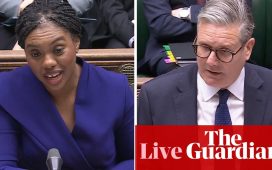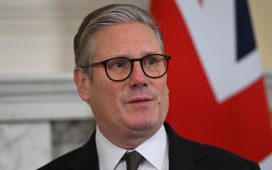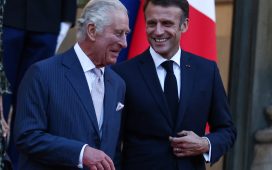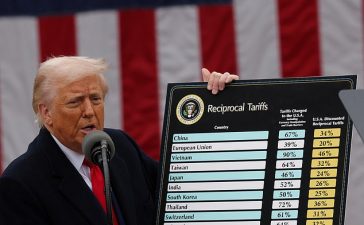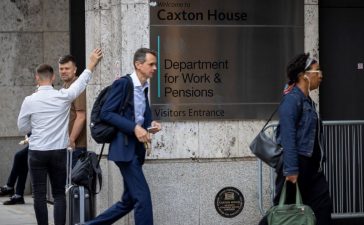Amid the chaos of rioting and misinformation that followed the Southport attack last summer, the abject horror of the crime itself almost seemed to recede: the murder of three little girls, and the attempted murder of eight others and two adults. This horror is clearly back in view this week – with a new scrutiny on all the missed opportunities to stop it. The fact that has gained most attention is that the 18-year-old killer, Axel Rudakubana, had been referred to Prevent, the government’s counter-extremism programme, three times in 2019 and 2021. Each time, Prevent concluded his preoccupation with violence was concerning but did not intervene. Rudakubana did not have a coherent ideology, so he was not considered suitable for the programme.
In a press conference about the Southport killings on Tuesday, Keir Starmer said this decision was “clearly wrong”, and pledged to change the law so that lone wolf killers without a clear ideology can be prosecuted as terrorists. “When I look through the details of this case, the extreme nature of the violence, the meticulous plan to attack young children in a place of joy and safety – violence clearly intended to terrorise – then I understand why people wonder what the word terrorism means,” he said. UK law defines terrorism as violence, or the threat of violence, carried out with “the purpose of advancing a political, religious, racial or ideological cause”. It’s not clear what would be gained by expanding the definition to include non-ideological violence. Rudakubana was obsessed with US school shootings, and in his call to expand terror legislation, Starmer drew a comparison with these acts of mass violence. But in the US, most mass shootings are not classified as terrorism. Sometimes, violence is violence.
Why, then, is the government so keen to define the Southport incident, and others like it, as terrorism? The answer may be logistical: a desire to solve a problem with existing tools. In Prevent, a central pillar of the government’s counter-terror strategy, and Channel, a deradicalisation programme in which different agencies work with individuals, we have a fairly established system of targeted intervention to de-escalate violence and address extreme ideas. There is no parallel early intervention programme for those who clearly pose a risk of violence but lack a coherent ideology. Only about 7% of referrals (though that figure varies from year to year) to Prevent are taken forward, with the most common decision being – as in Rudakubana’s case – that there may be cause for concern, but no specific terrorist threat.
It is not clear where someone with Rudakubana’s profile could be referred to next. The UK has limited specialised police forces to deal with people whose behaviour seems concerning, and scant programmes doing prevention work with violent offenders. Community and youth work, social care and mental health services have all suffered serious cuts over the last decade and a half. Prevent was not the only state agency that failed to intervene early and effectively with Rudakubana. He’d previously been convicted of a violent assault against another child at school and been referred to the youth offending team; Lancashire police had been to his home address five times; he’d been repeatedly referred to a safeguarding panel in his area; he’d had contact with child and adolescent mental health services. Yet none of these agencies recognised the level of threat he posed, or had the right tools to intervene.
There are several issues with simply expanding counter-terror programmes to take in people with no terrorist motivation. For a start, we don’t know how effective Prevent or Channel are – there’s very limited evidence in the public domain, and the government is tight-lipped about this. On top of that, the counter-terror agenda is incredibly political, which could in itself be a limiting factor to its efficacy. In some communities, Prevent is a deeply tarnished brand that people might not want to cooperate with. We should also be concerned about a political culture in which every act of violence is viewed through the prism of terrorism, given how a spectre of national security concerns is so often used to erode civil liberties. In the last decade, for instance, Prevent has moved away from a focus on violence towards the more nebulous aim of stamping out extreme ideas. Critics argue this shift has impinged on free speech, particularly for ethnic minorities.
Rudakubana’s case is muddied by the fact that he was also charged, back in October, with two terrorist offences – possessing an Al-Qaida training manual and the toxin ricin. But it seems that his interest in the manual was more to do with method than ideology. He had also accessed vast amounts of material about school massacres and genocides. Nonetheless, these charges were seized on by rightwing agitators as evidence of a cover-up. Terrorism is hugely emotive: last summer’s riots were triggered by the spread of misinformation that framed the incident as a terrorist attack carried out by a someone who had recently arrived on a small boat, blurring together amorphous anxieties about foreign invaders. The truth is smaller, sadder, and less straightforward: a British-born teenager obsessed with mass violence, spending too much time alone and online, absorbing horrific content – and whom multiple services failed to deal with, despite having scores of opportunities.
The question of what motivates acts of extreme violence, and how the state can stop them happening, is extremely complicated. The public inquiry that the government has announced will delve into more than the definition of terrorism, also looking at the easy availability of extreme violent content online and failures by different state agencies to intervene in Rudakubana’s case. That seems like the right approach. Unfettered access to not only footage of extreme violence but tips on how to commit acts of violence – and even the physical tools to do so, since Rudakubana ordered a knife on Amazon – are deep societal problems with no straightforward solutions. Add to this hollowed-out social care and criminal justice systems that are poorly equipped to deal with increasingly common issues like social isolation and a preoccupation with violence, and you have a perfect storm. The right question is not why Prevent didn’t work with Rudakubana, but why there wasn’t anyone else who could.



